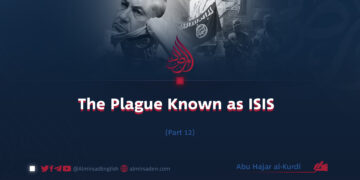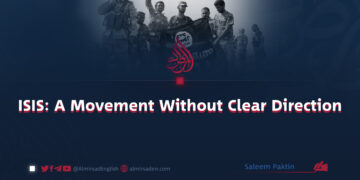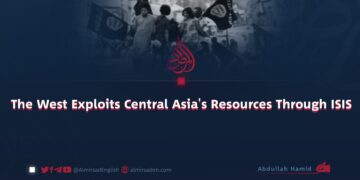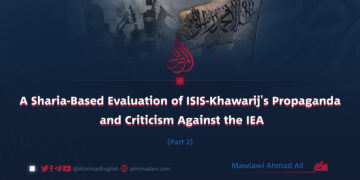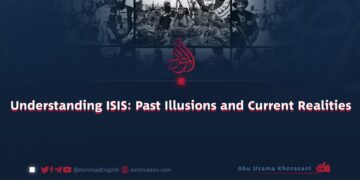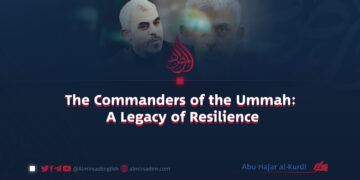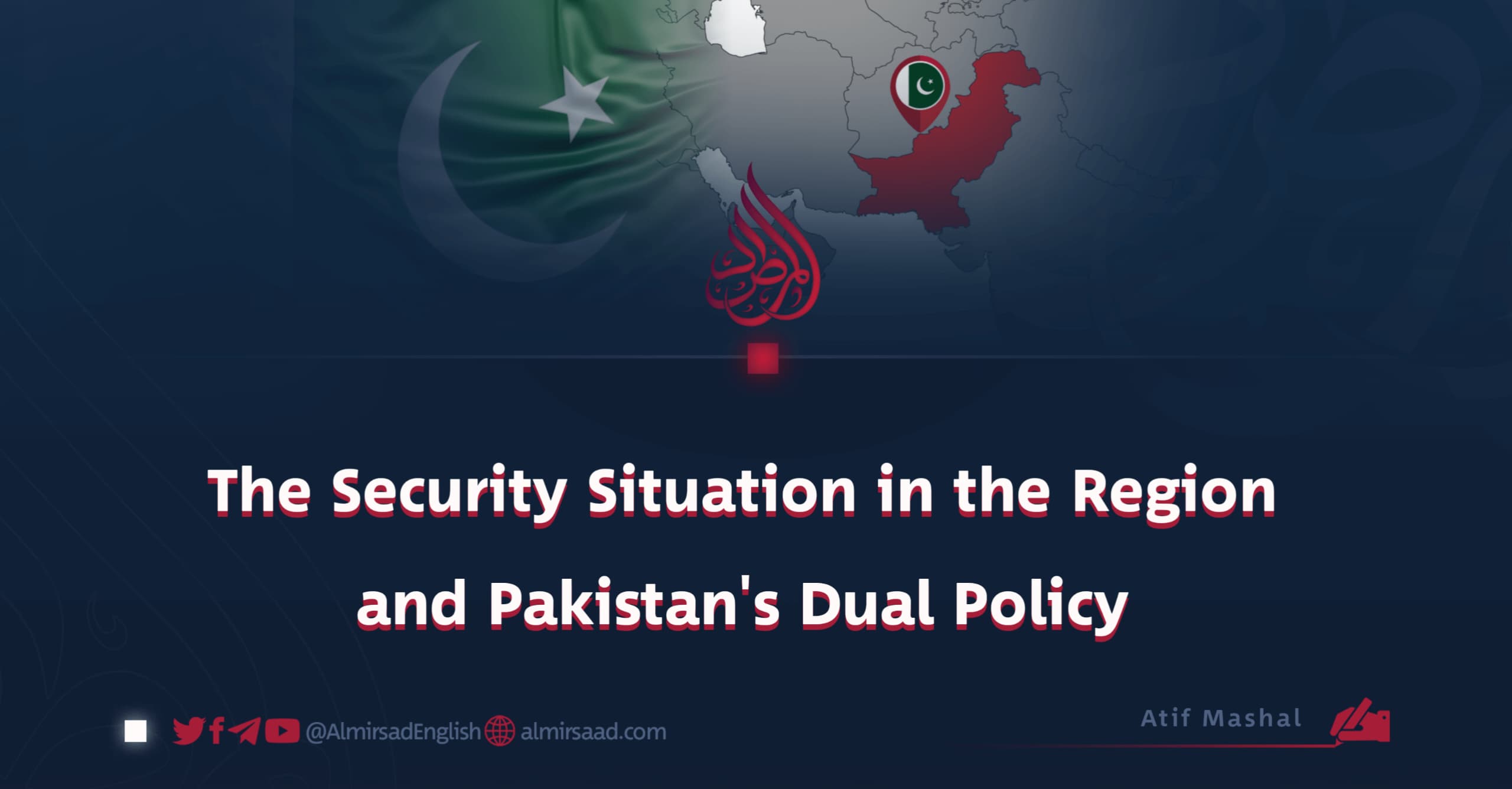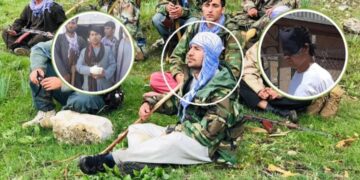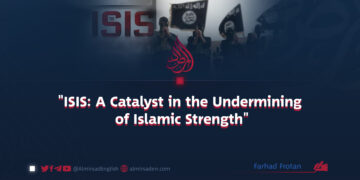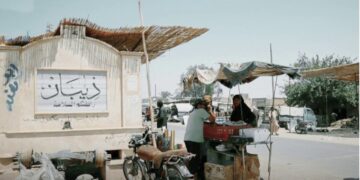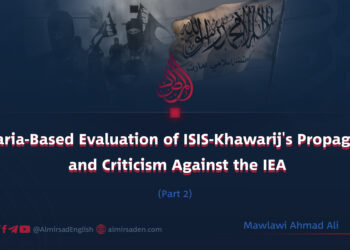Atif Mashal
The recent statements by Pakistani high officials regarding the security situation in the region and Pakistan’s dual policy are astonishing and perplexing. Especially, the statements by Pakistan’s Minister of Defense, Khawaja Muhammad Asif, linking these attacks to Afghanistan are entirely baseless accusations and claims.
According to credible reports from news agencies like Reuters and Al-Mirsaad, the head of ISIS Khorasan, Shihab al-Muhajir, is still active and residing in a region of Balochistan, Pakistan. These reports indicate that after being injured in Afghanistan and suffering severe wounds, Shihab al-Muhajir fled to the Balochistan region of Pakistan and subsequently initiated terrorist activities from there.
Similarly, the chairman of the Baloch National Movement, Dr. Naseem Baloch, while addressing a conference in Geneva, stated, “The presence of the global terrorist organization ISIS Khorasan in Balochistan is alarming.” Dr. Naseem Baloch explicitly mentioned that “the ISIS-K camp in Balochistan is receiving assistance from the Pakistani military, and they continue their activities under direct supervision and cooperation of the Pakistani army.”
These baseless accusations and false claims by Pakistani authorities, linking terrorist activities to Afghanistan, are refuted by international media and regional politicians. They seem to be an attempt by Pakistani authorities to divert attention from internal security shortcomings and vulnerabilities or to create negativity and suspicion about Afghanistan’s current government among neighboring countries and the global community.
Furthermore, there have been indications that the Pakistani military and certain political circles, possibly working in favor of Western interests, are involved in armed attacks against Chinese companies.
These actions may be part of a broader agenda to position Pakistan at the center of global power competition and rivalry.
The current pro-Western tilt by the Pakistani military and politicians seems to be based on covert signals from the West, possibly aimed at creating negativity and suspicion about Afghanistan’s current government among neighboring countries and the international community. This could serve as a distraction from Pakistan’s internal security challenges and vulnerabilities or as an attempt to undermine the China-Pakistan Economic Corridor (CPEC), a major economic initiative.
While Pakistan grapples with security difficulties, it is also facing severe economic issues. There are assumptions that funding for ISIS projects is driven by these economic constraints, allowing Pakistan’s intelligence agencies and other Western economic and financial cooperation to benefit from actions related to ISIS projects in the region.
Supporting ISIS projects and providing a safe working corridor for ISIS in the region poses a threat not only to Afghanistan and the China-Pakistan Economic Corridor (CPEC) but also to Central Asia, Russia, and Iran.
The actions taken by Pakistani generals and politicians are not only conflicting with Afghanistan but also pose a significant threat to the entire region, including Russia, China, and Iran. Western funding for ISIS projects is not limited to one country but extends to multiple countries in the region, strengthening the group.
This move by Pakistani generals and politicians, aligned with Western agendas, may have far-reaching consequences. It risks not only negative reactions from the Pakistani public but also enmity and opposition from neighboring countries in the region.
Similarly, the efforts of this group to exploit the name of the
Tehreek-e-Taliban Pakistan (TTP) and destabilize regions in northern Pakistan (Gilgit-Baltistan and Chitral) and northeastern Afghanistan (Kunar, Nuristan, Badakhshan, Takhar, Laghman) where the China-Pakistan Economic Corridor (CPEC) and Wakhan Corridor projects are underway pose a threat not only to Afghanistan and CPEC but also to Central Asian countries, Russia, and Iran.
The actions taken by Pakistani generals and politicians are not only conflicting with Afghanistan but also pose a significant threat to the entire region, including Russia, China, and Iran. Western funding for ISIS projects is not limited to one country but extends to multiple countries in the region, strengthening the group.
This move by Pakistani generals and politicians, aligned with Western agendas, may have far-reaching consequences. It risks not only negative reactions from the Pakistani public but also enmity and opposition from neighboring countries in the region.
Similarly, being involved in baseless accusations and playing the blame game instead of practical efforts for regional stability and security leads to an increase in violence and hinders fruitful negotiations and cooperation.
Moreover, engaging in such unfounded blame games undermines trust and cooperation among neighboring countries. This lack of trust not only affects counterterrorism efforts but also poses risks to major regional economic projects, such as the China-Pakistan Economic Corridor (CPEC) and the Wakhan Corridor project.
Tajikistan, due to its economic interests, supports the CPEC project. However, the move by some Pakistani generals and politicians towards clandestine signals to Central Asian and Uzbek armed groups in South Uzbekistan and East Turkistan risks security challenges for China and Central Asian countries. These terrorist groups, trapped in their imaginary promises of regional freedom, are perceived as significant security threats to China’s interests and the CPEC project.
The emergence of “South Uzbekistan” and “East Turkistan” adds complexity to their activities and may further complicate regional security matters.
Rather than engaging in baseless accusations, Pakistan should choose a policy that not only avoids conflict and confrontation with the region but also promotes trust and cooperation. In this context, acknowledging internal security challenges, addressing them domestically, and creating an atmosphere of trust and cooperation among neighboring countries are essential for regional stability.
Today, a new world order has given most countries various powers of choice. Countries that prioritize their survival are moving forward with regional harmony and cooperation.






